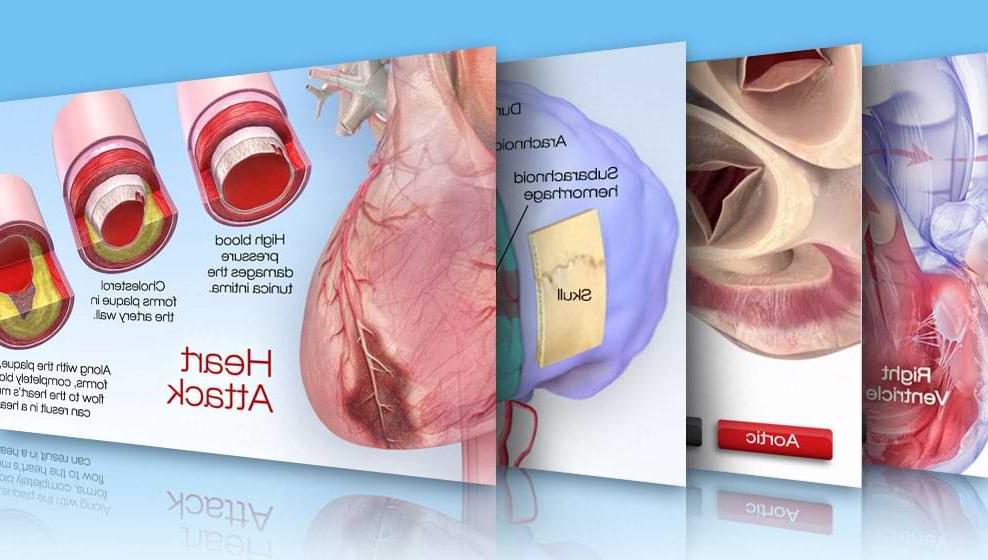心绞痛(胸痛)
Angina is chest pain or discomfort caused when your heart muscle doesn't get enough oxygen-rich blood. It may feel like pressure or squeezing in your chest. The discomfort also can occur in your shoulders, arms, neck, jaw, abdomen or back. Angina pain may even feel like indigestion. 除了, some people don’t feel any pain but have other symptoms like shortness of breath or fatigue. If these symptoms are due to a lack of oxygen to the heart muscle, 它被称为“心绞痛当量”.”
但心绞痛不是一种疾病. It's a symptom of an underlying heart problem, usually 冠心病(CHD), also known as coronary artery disease (CAD).心绞痛有很多种类型, 包括稳定, 不稳定, 微血管, and 心绞痛 caused by a spasm in the coronary arteries (vasospastic or variant). 查看心绞痛的动画(链接在新窗口中打开)(链接在新窗口中打开).
Angina usually happens because one or more of the coronary arteries is narrowed or blocked, 也被称为 缺血.
心绞痛也可能是 冠状动脉微血管病. This is heart disease that affects the heart’s smallest coronary arteries and is more likely to affect women than men. 了解更多关于 女性心绞痛.
Depending on the type of 心绞痛 you have, there are many factors that can trigger 心绞痛 pain. The symptoms also vary based on the type of 心绞痛 you have.
心绞痛的类型
Knowing the types of 心绞痛 and how they differ is important.
了解患心绞痛的风险
If you’re at risk for heart disease or coronary artery disease, you’re also at risk for 心绞痛. The major risk factors for heart disease and coronary artery disease include:
- 不健康的 胆固醇水平
- 高血压
- 吸烟
- 糖尿病
- 超重或肥胖
- 代谢综合征
- 缺乏身体活动
- 不健康的饮食
- Older age (The risk increases for men after 45 years of age and for women after 55 years of age.)
- 有早期心脏病家族史
诊断
All chest pain should be checked out by a health care professional. He or she will want to find out if it's 心绞痛 and if it is, whether the 心绞痛 is stable or 不稳定. If it's 不稳定, you may need emergency medical treatment to try to prevent a 心脏病.
Your health care professional will most likely perform a physical exam, 询问你的症状, and ask about your risk factors for and your 家族病史 心脏病和其他疾病 心血管疾病.
Your health care professional will also ask you a series of questions to rule out the most critical or life-threatening possibilities. Think ahead so you can provide as much information as possible. Here are some questions you might be asked:
- 你得这种病多久了?
- On a scale of 1 (mild) to 10 (critical), what is your level of discomfort?
- 什么行为会引起疼痛? 体育活动? 吃?
- 什么能缓解不适?
Print our Angina Log to keep track of your 心绞痛 symptoms.
心绞痛治疗
If your health care professional thinks that you have 不稳定 心绞痛 or that your 心绞痛 is related to a serious heart condition, they may recommend the following tests and procedures:
心绞痛的治疗包括:
- 确定原因
- 心脏手术 打开阻塞的动脉
- 药物 帮助保持动脉畅通
- 药物 to treat other medical conditions and risk factors like high blood pressure, 高胆固醇和糖尿病
- 生活方式的改变 including healthy diet and physical activity
- 心脏康复 (如果你有资格)
These treatments will help reduce pain and discomfort and how often the 心绞痛 pain occurs. They will also prevent or lower your risk for 心脏病 and death by treating the underlying cardiovascular condition you may have.
Not all chest pain is a sign of heart disease.
Other conditions also can cause chest pain, such as:
- Pulmonary embolism (a blockage in a lung artery)
- Aortic dissection (tearing of a major artery)
- 肺部感染
- 主动脉瓣狭窄 (心脏主动脉瓣狭窄)
- 肥厚性心肌病 (心肌疾病)
- 心包炎 (inflammation in the tissues that surround the heart)
- 惊恐发作
了解更多:
- 打印可下载表格: 什么是心绞痛? (PDF)






